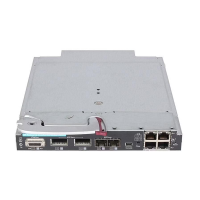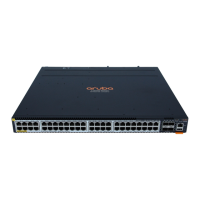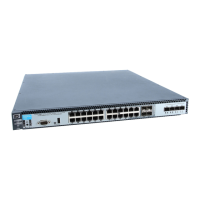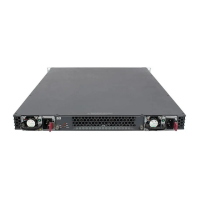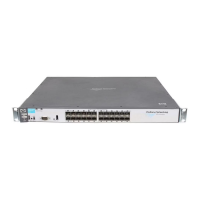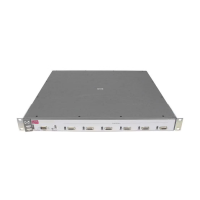94
Configuring single-hop echo detection
Ste
Command
Remarks
1. Enter system view.
system-view N/A
2. Configure the source address of echo
packets.
bfd echo-source-ip ip-address
By default, the source address
of echo packets is not
configured.
3. Enter interface view.
interface interface-type
interface-number
N/A
4. Enable BFD single-hop echo
detection.
ospf bfd enable echo
By default, BFD single-hop
echo detection is disabled.
Configuring OSPF FRR
A link or router failure on a path can cause packet loss and even routing loop until OSPF completes
routing convergence based on the new network topology. FRR uses BFD to detect failures and enables
fast rerouting to minimize the impact of link or node failures.
Figure 21 Network diagram for OSPF FRR
In Figure 21, configure FRR on Router B by using a routing policy to specify a backup next hop. When the
primary link fails, OSPF directs packets to the backup next hop. At the same time, OSPF calculates the
shortest path based on the new network topology, and forwards packets over the path after network
convergence.
You can configure OSPF FRR to calculate a backup next hop by using the loop free alternate (LFA)
algorithm, or specify a backup next hop by using a routing policy.
Configuration prerequisites
Before you configure OSPF FRR, complete the following tasks:
• Configure IP addresses for interfaces to ensure IP connectivity between neighboring nodes.
• Enable OSPF.
Configuration guidelines
• Do not use FRR and BFD at the same time. Otherwise, FRR might fail to take effect.
• Do not use the fast-reroute lfa command together with the vlink-peer or sham-link (see MPLS
Command Reference) command.

